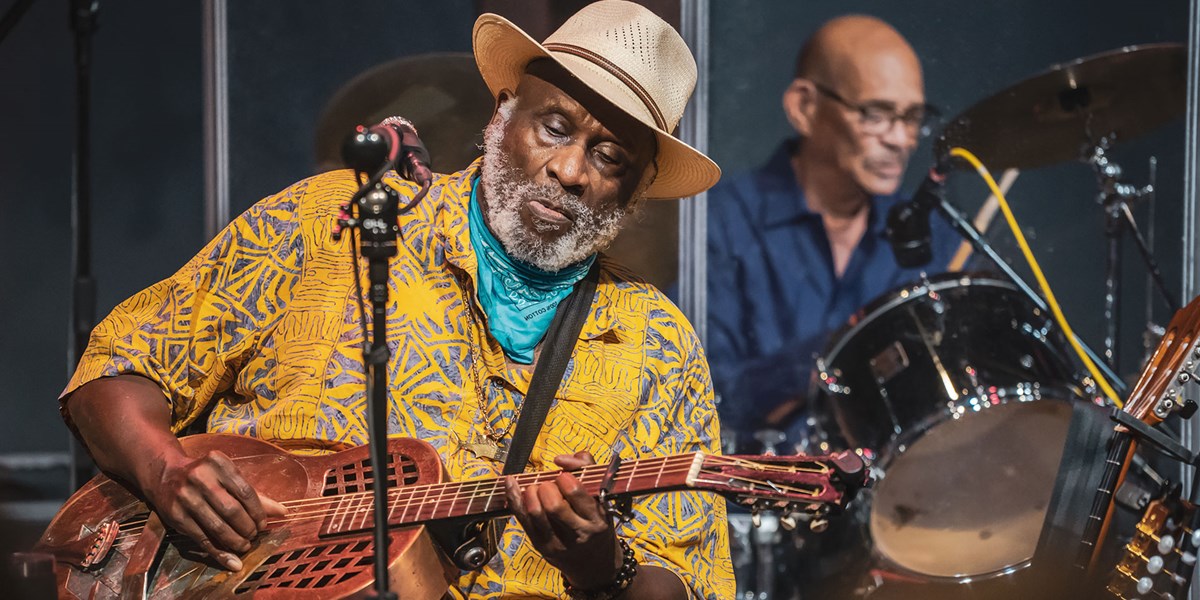Thursday, June 12, 2025
Taj Mahal: A Beginner's Guide
Nigel Williamson surveys the US musician whose career has long shown that the blues is a global musical movement

Taj Mahal in The Church Studios, London, 2022

Register now to continue reading

Thanks for visiting the Songlines website, your guide to an extraordinary world of music and culture. Sign up for a free account now to enjoy:
- Free access to 2 subscriber-only articles and album reviews every month
- Unlimited access to our news and awards pages
- Our regular email newsletters

